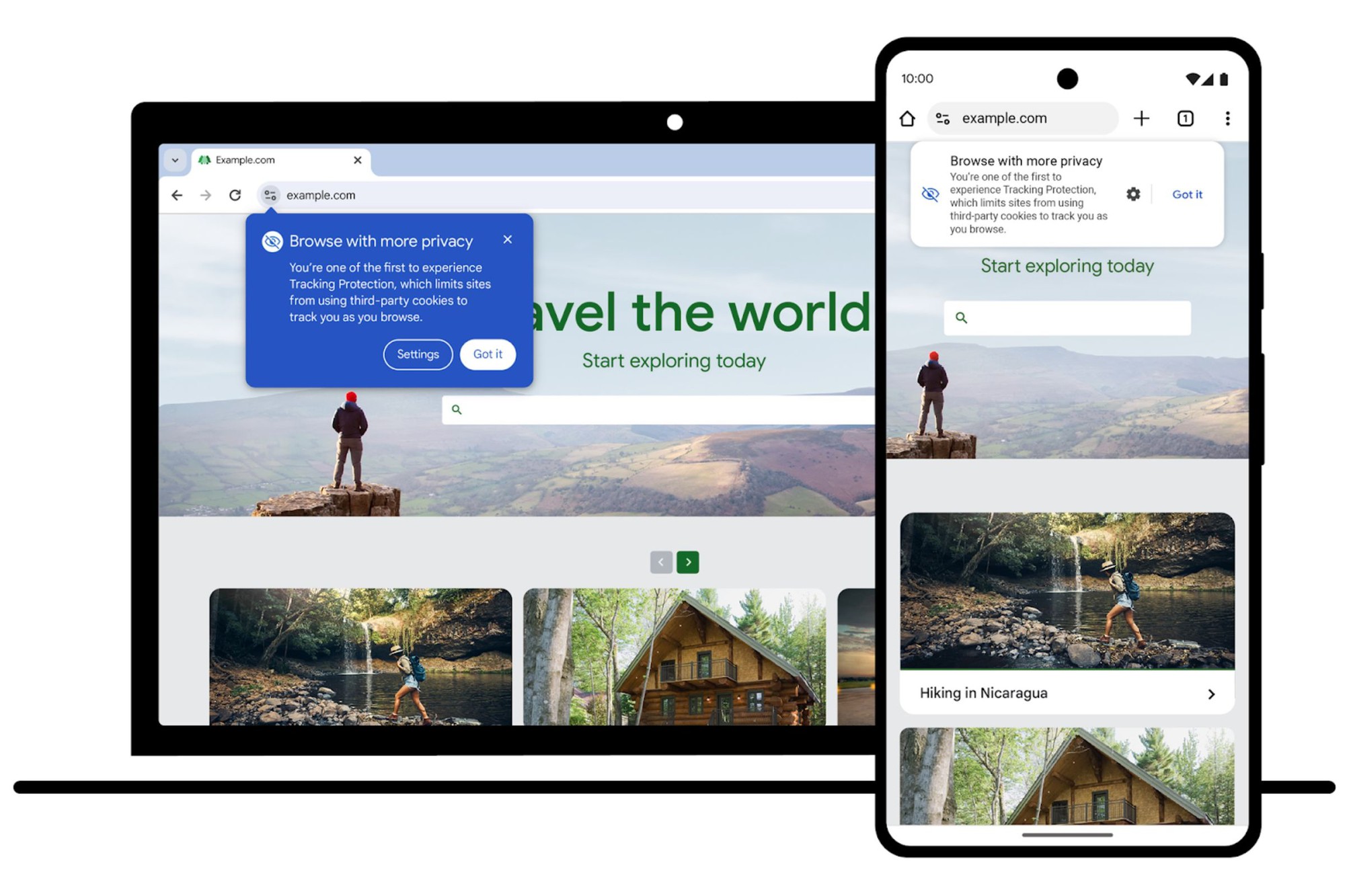According to The Verge , Google has begun rolling out a major plan to block third-party cookies on the Chrome browser, which are used by many websites to track user activity.
Accordingly, since January 4, the search giant began testing the Tracking Protection feature on about 1% of Chrome's 3 billion users. After that, Google plans to gradually eliminate the use of third-party cookies for all users in the second half of 2024.
Users randomly selected to try Tracking Protection will receive a notification from Google when they open Chrome on desktop or Android. If the new feature encounters a problem while browsing, the browser will display a prompt asking if the user wants to temporarily re-enable third-party cookies to continue using the site.

Notice of testing Tracking Protection feature on Chrome
Since 2020, Google has been quietly building Privacy Sandbox, an alternative to cookies that provides advertisers with anonymous browsing data. They will use Google-provided APIs to do the work of deploying ads, promising better privacy protection. Two important components of Privacy Sandbox, Topics API and Tracking Protection, are currently in testing, bringing hope to privacy-conscious users and advertising businesses alike.
Compared to other browsers that have taken a more aggressive approach, like blocking cross-tracking altogether, Google's approach seems more friendly to both sides. However, Google's competitors and privacy advocates are not entirely convinced by this cookie-replacing technology.
Regulators such as the UK Competition and Markets Commission (CMA) are also keeping a close eye on Tracking Protection. The biggest concern is that Google will use this advantage to overwhelm its competitors in the advertising market. Therefore, the company has announced that it is willing to delay the global rollout of Tracking Protection to the second half of 2024 if it needs more time to address competition concerns.
Source link





![[Photo] Binh Trieu 1 Bridge has been completed, raised by 1.1m, and will open to traffic at the end of November.](https://vphoto.vietnam.vn/thumb/1200x675/vietnam/resource/IMAGE/2025/10/2/a6549e2a3b5848a1ba76a1ded6141fae)



































































































Comment (0)